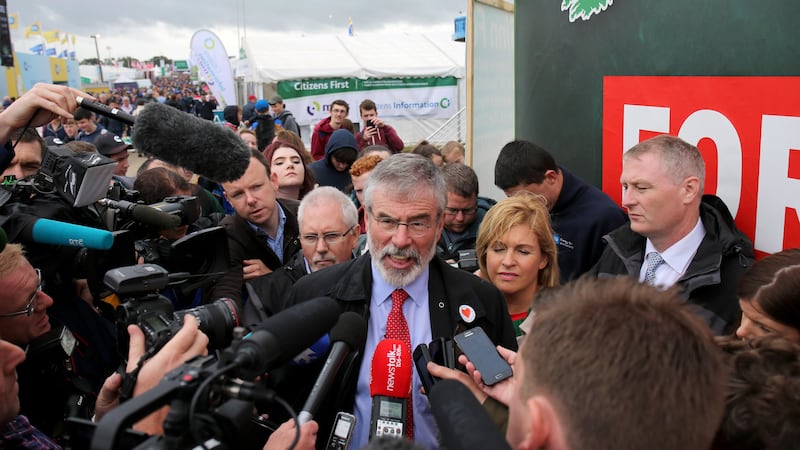THERE is a story about two Irishmen in the Royal Air Force who are on a bombing raid over Berlin during the Second World War.
Gazing in horror at the carnage below, one of them says: “Isn’t that a terrible sight?” The other Irishman replies: “Yes, thank goodness Mr de Valera kept us out of the bloody thing.”
Apart from the element of black humour, the tale also reflects the ambivalence of the south’s relationship with Britain. During the ‘Emergency’, as it was known in the 26 counties, the state remained neutral, while at the same time an estimated 245,000 or over eight per cent of its population joined the British war effort.
Whereas a close relative of mine had been jailed some years earlier as a member of the anti-Treaty IRA, another was a member of the British Expeditionary Force at Dunkirk and got wounded during the evacuation in May-June 1940.
The ambivalent British-Irish, or perhaps more accurately, Anglo-Irish relationship has come into focus again in the wake of the Brexit referendum. This is arguably the biggest challenge facing the southern state since the outbreak of the Troubles in 1969-70.
It now looks as if the United Kingdom could be gone from the European Union by the spring of 2019, but it is hard to feel great confidence in the ability of the political system in the south to deal effectively with the consequences in that quarter.
The initial response of the Dublin government in the wake of the referendum was inept and amateurish.
The Taoiseach’s office announced in advance of a plenary of the North-South Ministerial Council that he would "raise the possibility of developing an all-island forum".
But nobody consulted Arlene Foster beforehand and Enda Kenny later admitted it wasn't even proposed at the meeting. Finally on November 2 an “All-Island Civic Dialogue” is due to be launched, but without the First Minister’s participation.
On the opposition side, Sinn Féin’s call for a border poll suggested someone was searching frantically in the kitchen drawer for a quick response.
Waving the green flag is what republican parties tend to do and it comforts their core support-base, but if a poll took place now it would be overwhelmingly defeated in the north and could even be lost in the south.
Indeed the demand for a poll probably ensures that, if another UK referendum to reverse last June’s decision somehow came about, then unionists who previously opposed Brexit might change their vote because of fears they were encouraging Irish nationalism.
The Fine Gael-led minority government is making the implications for the peace process a key factor in its approach to the forthcoming Brexit negotiations at European level.
With some exceptions like the energetic foreign affairs minister Charlie Flanagan, the establishment in Dublin has not displayed a major interest in goings-on north of the border.
But now it has been decided to play the peace process card, apparently because even if Dublin is not that interested, Europe might be.
Since a period of uncertainty will obviously not be helpful to the peace process, politicians across all parties, in and out of government, have a duty to ensure that any negative fallout from the referendum is kept to a minimum.
In that context, it would be useful for Gerry Adams to remain as leader of Sinn Féin until the Brexit conundrum is resolved.
He may not thank me for writing this, as he does not come across as a man who finds Leinster House a life-enhancing experience.
But whatever his faults and failings – which the media have of course a duty to investigate – he was a key figure in the process that brought us from a violent past to the relatively peaceful present.
A well-placed source once told me that, when comparing the effectiveness of Palestinian leader Yasser Arafat (1929-2004) and the Sinn Féin chief, Bill Clinton said to Adams: “The difference between you and Arafat, Gerry, is that you delivered.”
The rejection of the Colombian peace deal in the recent referendum shows how difficult these situations can be, as well as the importance of political personalities.
Most of the other main players in our own peace process have moved on, in some cases to the great conclave in the sky.
None of the likely successors to Adams in the Sinn Féin leadership is going to have the same recognition factor with the ruling elite in Europe.
And while I’m at it, Martin McGuinness needs to stay on at Stormont Castle. Neither of them should be given a release-date until Brexit is sorted with minimum damage to both parts of this island.
Not even if they threaten to go on hunger-strike.
@ddebreadun








